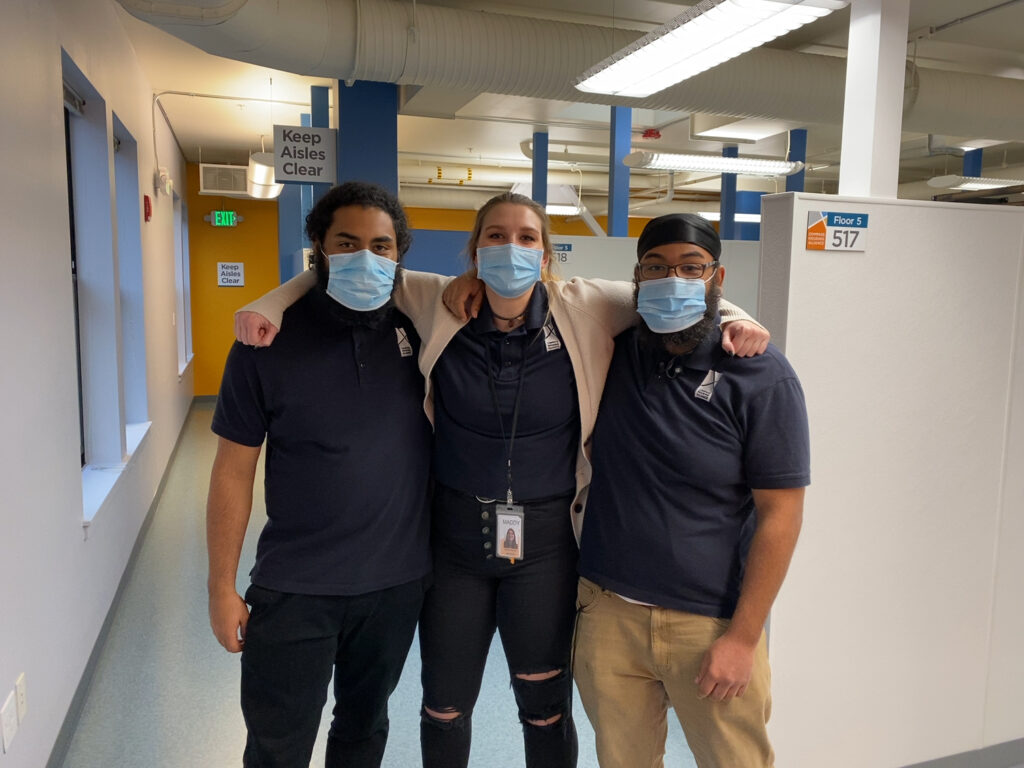Korey was one of the first guests to move into our Otto’s Place enhanced shelter in Pioneer Square. He faced numerous challenges finding permanent housing and bounced around from shelter to shelter – until he found Compass.
“I never felt respected in those different shelters,” he said. “I felt like I was just taking up space, stuck. Compass changed my life.”
Elijah Barbee is a housing navigator at Otto’s Place who worked with Korey. Recently, Elijah shared that Korey, a man who never thought he would find his own home, had found a permanent home in an apartment of his own.

“Korey had additional challenges being housed,” said Elijah. “His only income is social security, he is disabled using a wheelchair, and his past made it more difficult, but he never gave up and neither did we.”
Housing navigators do everything necessary to permanently house any guest who comes to stay with us in our enhanced shelters. From helping get documentation and social security cards to navigating government agencies, our navigators really do guide our guests to their next destination.
“We also help with resume building,” Elijah said. “Budgeting, clothing vouchers, reducing any financial barriers they may have like evictions, payment plans, we even assist with move-in costs. Whatever they need from the beginning to the end, we help them get it.”
Most of the referrals that lead people to our enhanced emergency shelters come through the city’s HOPE navigation team. This means the referrals can be for folks who were in tent encampments, other shelters, on the streets alone, or straight out of incarceration.
We serve every person with dignity and respect – something many of them haven’t experienced in a long time.
“Often, homelessness is assumed to be caused by mental health or drug use. We know that it is caused by lack of housing and lack of support,” Elijah said. “There are a lot of people who could be homeless right now, but they’re not because they have the support of their community. What I see every day, is when we create community and our guests feel that support, that social capital, they can figure things out. There isn’t anything inherently special or a moral failing. They didn’t do anything wrong. It comes down to support.”
There is a difference between those who have that “social capital” and those who don’t. There is a perception of “themness” to people experiencing homelessness. But the truth is, most Americans are two paychecks away from real trouble. Only 39% of Americans can pay an unexpected $1,000 bill or expense according to Bankrate, a consumer financial services company.
That’s why what we do here at Compass is so important. We help stand in the gap for Korey and walk alongside him on his journey. “Before Compass, I didn’t think I was worthy,” Korey said. “I didn’t think that I was worth care, but everyone here treated me like I was. They always listened, never pushed me to hurry up, or ignored me. It’s wonderful.”
“Too many people have a dehumanized viewpoint,” said Elijah. “No one deserves that. No one deserves to be out on the street. Housing is a right.”